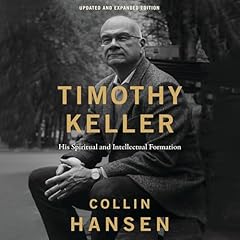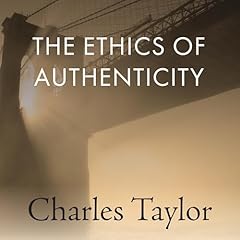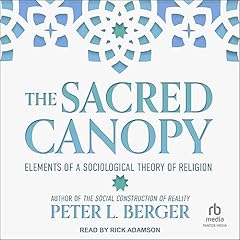
A Secular Age
No se pudo agregar al carrito
Add to Cart failed.
Error al Agregar a Lista de Deseos.
Error al eliminar de la lista de deseos.
Error al añadir a tu biblioteca
Error al seguir el podcast
Error al dejar de seguir el podcast
 Exclusivo para miembros Prime: ¿Nuevo en Audible? Obtén 2 audiolibros gratis con tu prueba.
Exclusivo para miembros Prime: ¿Nuevo en Audible? Obtén 2 audiolibros gratis con tu prueba.Compra ahora por $30.76
-
Narrado por:
-
Dennis Holland
-
De:
-
Charles Taylor
What does it mean to say that we live in a secular age? Almost everyone would agree that we - in the West, at least - largely do. And clearly the place of religion in our societies has changed profoundly in the last few centuries. In what will be a defining book for our time, Charles Taylor takes up the question of what these changes mean - of what, precisely, happens when a society in which it is virtually impossible not to believe in God becomes one in which faith, even for the staunchest believer, is only one human possibility among others.
Taylor, long one of our most insightful thinkers on such questions, offers a historical perspective. He examines the development in "Western Christendom" of those aspects of modernity which we call secular. What he describes is in fact not a single, continuous transformation, but a series of new departures, in which earlier forms of religious life have been dissolved or destabilized and new ones have been created.
As we see here, today's secular world is characterized not by an absence of religion - although in some societies religious belief and practice have markedly declined - but rather by the continuing multiplication of new options, religious, spiritual, and anti-religious, which individuals and groups seize on in order to make sense of their lives and give shape to their spiritual aspirations.
What this means for the world - including the new forms of collective religious life it encourages, with their tendency to a mass mobilization that breeds violence - is what Charles Taylor grapples with, in a book as timely as it is timeless.
©2007 Charles Taylor (P)2014 Audible Inc.Los oyentes también disfrutaron:




















Las personas que vieron esto también vieron:


















The only very slight qualm I have with this edition is that the French, which is a thoroughly reoccurring aspect to Taylor's text, seems a little stilted. Could be far worse, of course, and, seeing as that is the sole, and principle criticism, there's really very little reason to not pursue this thoroughly enlightening, and edifying (if, granted, a dizzyingly long and complex) grand opus.
The grand granularity, and lucidity of Taylor's thought
Se ha producido un error. Vuelve a intentarlo dentro de unos minutos.
Brilliant
Se ha producido un error. Vuelve a intentarlo dentro de unos minutos.
Paradigm Shifting
Se ha producido un error. Vuelve a intentarlo dentro de unos minutos.
What it means to live in a secular age
Se ha producido un error. Vuelve a intentarlo dentro de unos minutos.
Wine and wine skin
Se ha producido un error. Vuelve a intentarlo dentro de unos minutos.


